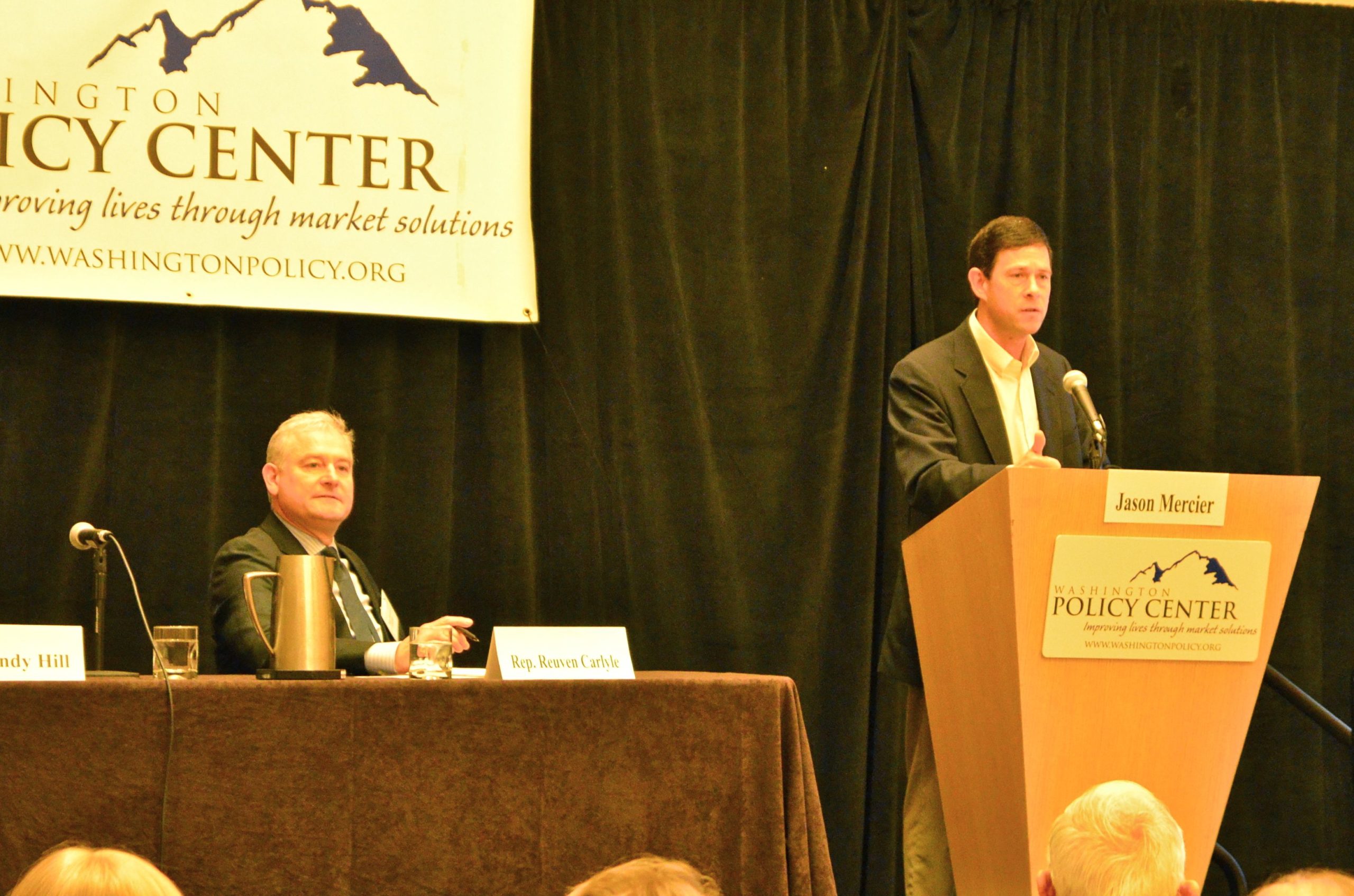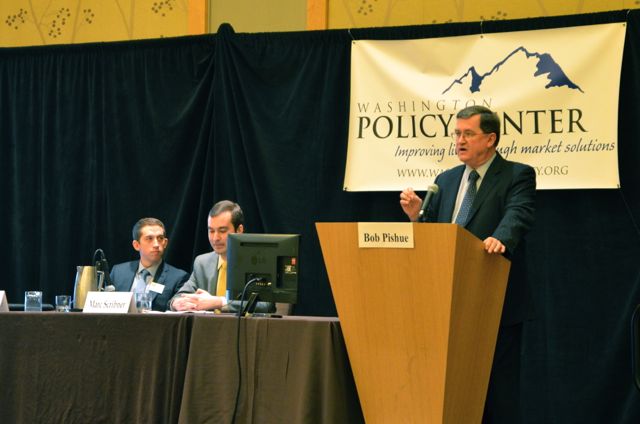It wasn’t quite a debate, but the differences were clear in presentations on state legislative priorities given by Sen. Andy Hill (R-Redmond) and Rep. Reuven Carlyle (D-Seattle) at the Washington Policy Center’s Solutions Summit in Bellevue on Wednesday.

Hill made the argument that the surplus in the state revenues would allow for an additional $1 billion in education spending and cover existing expenses over the next biennium.
However, Hill, the Senate Ways & Means chairman, criticized Gov. Jay Inslee‘s proposed new capital gains tax in his $39 billion, two-year budget, which the governor introduced last month.
“We do not have a brutal deficit,” Hill said. “It’s a false choice to say you raise taxes or you make cuts.”
Carlyle, the House Finance chairman, was critical of Washington’s taxing system as a whole, which he says squeezes middle- and lower-income taxpayers as well as small businesses. But Carlyle was also skeptical of the idea that the spending side of a budget should get the most scrutiny. He said many of the state’s tax exemptions to businesses have not been revisited since they were passed.
“I believe the best tax structure would be low rates, broadly applied with few exemptions,” he said.
The Washington Policy Center, a pro-business think tank, hosted Hill, Carlyle and Sen. Curtis King (R-Yakima) and others in a half-day summit that prepared attendees and other supporters for the 2015 Washington state legislative session. The Bellevue event, which drew 400 people, was the second day of a two-day summit on legislative issues. The first day was held in Kennewick on Tuesday.
Other speakers at the Bellevue event included former Attorney General Rob McKenna, former New York Gov. George Pataki, Forbes columnist and former health care policy advisor to Mitt Romney Avik Roy and a small business panel that included former Starbucks president Howard Behar and restaurateur Taylor Hoang, who owns Pho Cyclo restaurants.

In a transportation forum, King, the Senate transportation chairman, declined to discuss in detail why lawmakers failed to come up with a transportation package that would pay for major road projects in the last session, but said that going forward, the state needs to consider what projects would make the greatest economic impact to the state as a whole.
“We got to take this limited amount of money and use it to address our problems,” he said. “Bike and ped paths are not our problem… They are nice to have, but not our problem.”
King, who was in the panel with Marc Scribner, a research fellow at the Competitive Enterprise Institute, also criticized cities that make local decisions without considering how transportation will be affected, such as in Seattle, where several projects in the South Lake Union area will bring 44,000 people to the area to live and work and bringing further congestion to the area, he said.
“Because Seattle said, ‘Hey, we’ll let you build those towers,’ is that the state’s problem?” King asked.